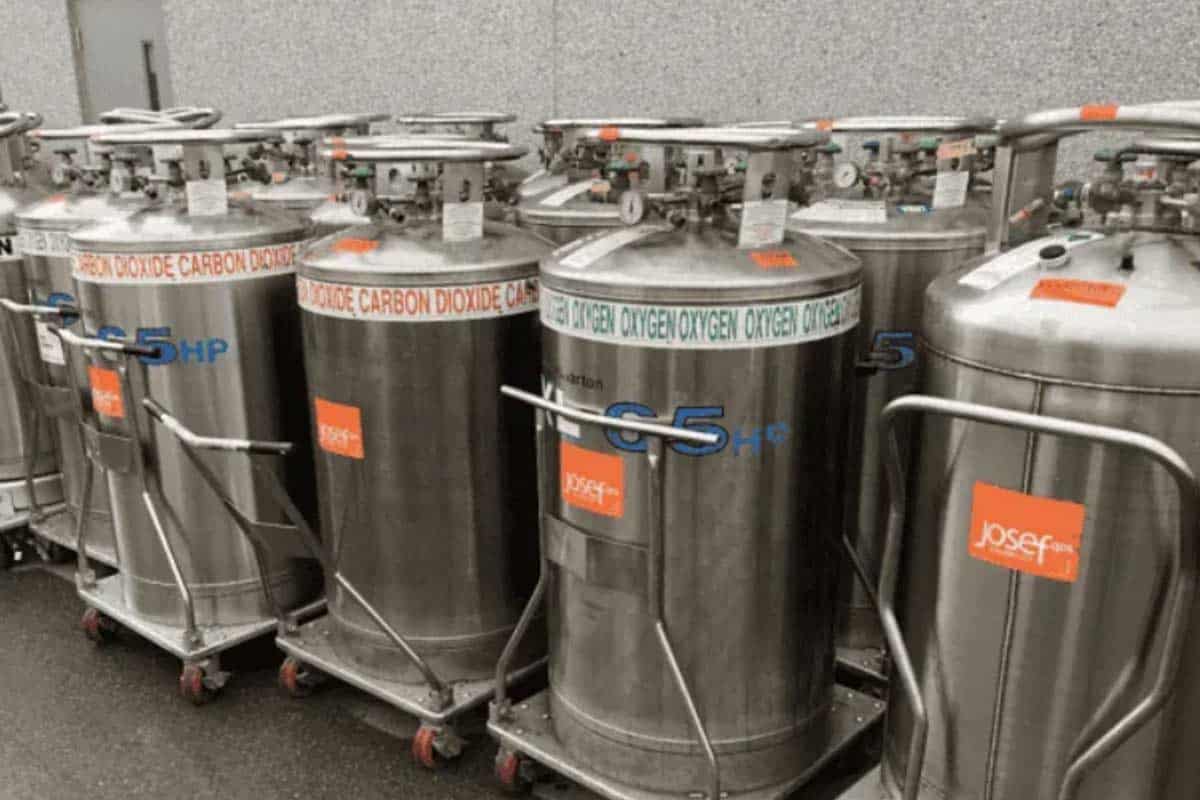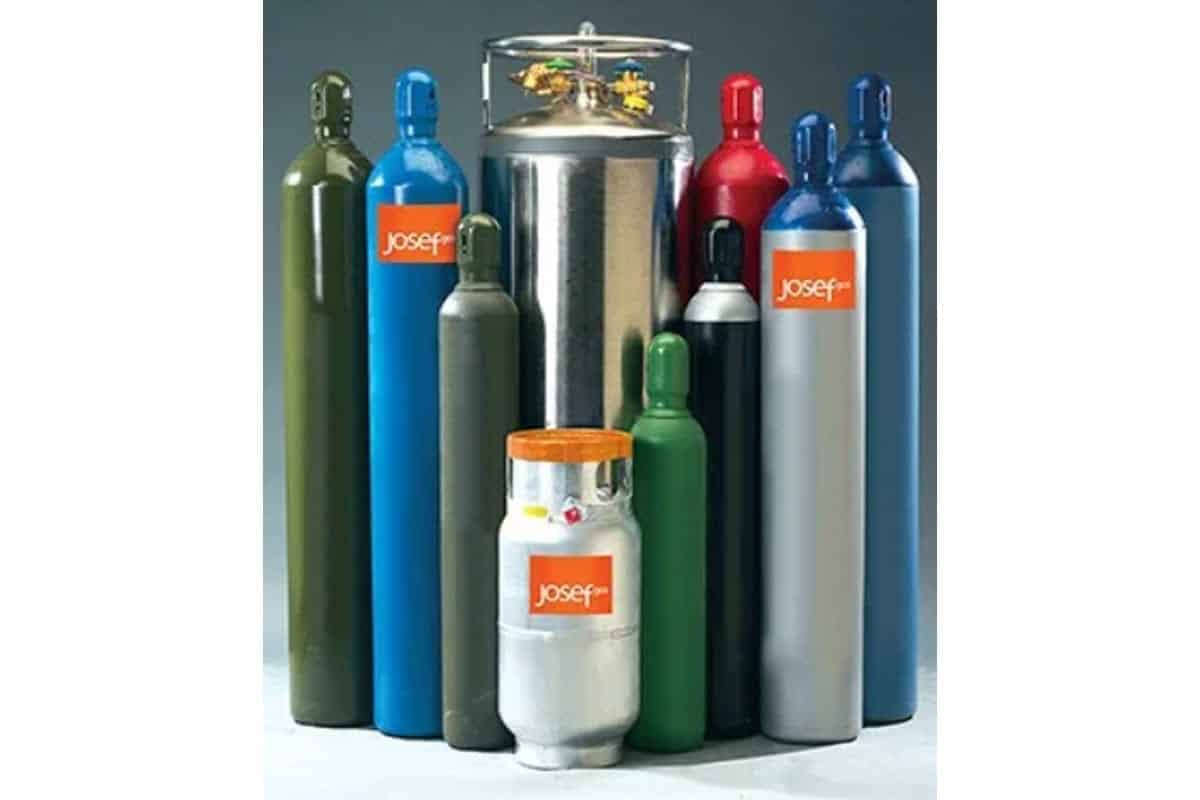10 Ways Food-Grade Gas in Toronto Cuts Waste and Boosts Profits for Local Manufacturers
November 12, 2025 4:15 pmToronto’s food production sector is a cornerstone of the city’s economy, yet local manufacturers constantly face a tough balancing act: keeping products fresh, safe, and appealing while managing ever-increasing operational costs. One of the most effective, yet often overlooked, tools for achieving this efficiency is the strategic use of high-quality, food-grade gas in Toronto. These specialized gases, which range from nitrogen and carbon dioxide to custom blends, are fundamental to everything from packaging and preservation to process efficiency. By ensuring products stay fresher longer, reducing spoilage, and streamlining operations, a reliable gas supply chain directly contributes to a healthier bottom line.
The impact of quality gas extends beyond just the product shelf life. It influences the speed of production, the safety of the working environment, and the dependability of the equipment used. When manufacturers partner with a trusted local supplier, they gain more than just cylinders; they get expert consultation that helps them optimize their gas usage, minimizing both product and operational waste. This focus on precision and reliability, particularly when paired with seamless propane delivery for facility operations, transforms gas supply from a simple expense into a powerful driver of profit. The following points detail exactly how embracing top-tier gas solutions is now a key strategy for any Toronto food manufacturer aiming to significantly cut waste and dramatically improve their profits.
- Extending Product Shelf Life with Modified Atmosphere Packaging (MAP)
The biggest drain on profit in the food industry is spoilage. Products that degrade quickly force retailers to mark down prices or, worse, discard inventory entirely. This waste is a direct and immediate cost.
- Precision Gas Blends: Food-grade gas in Toronto suppliers provide specialized gas blends (usually N2 and CO2) used in MAP. These blends slow the growth of spoilage organisms, such as mould and bacteria, by replacing the air inside packaging.
- Reduced Returns and Rework: When products remain fresh for their entire intended shelf life, manufacturers see a steep drop in retailer returns, which cuts into logistics costs, re-processing time, and overall product loss.
- Minimizing Oxidation and Preserving Flavour
Oxygen is the enemy of fresh flavour and colour. Exposure to it causes oils to go rancid and fresh produce to brown. This chemical change makes food unappetizing, leading to consumer rejection and further waste.
- Nitrogen Blanketing: Inert gases, chiefly nitrogen, are used to ‘blanket’ or ‘purge’ storage tanks, pipelines, and processing vats. This process effectively removes oxygen, protecting oils, wines, and liquid ingredients from degradation.
- Higher Quality Output: By preventing rancidity, the final product maintains its intended sensory profile—taste, smell, and colour—leading to stronger brand loyalty and fewer consumer complaints about ‘off’ flavours.
- Better Raw Material Utilization: Protecting bulk ingredients (like cooking oils or spice blends) with an inert atmosphere means that less raw material is lost to pre-process spoilage, ensuring better utilization of expensive inputs.
- Enhancing Freezing and Chilling Efficiency
Cryogenic gases (CO2 and liquid nitrogen) are crucial for rapid chilling and flash freezing, processes that lock in texture and nutrients while drastically reducing drip loss. Drip loss, the liquid that seeps out when food thaws, is lost product weight and a quality indicator.
- Rapid Freezing: Liquid nitrogen freezing is much faster than mechanical freezing, forming smaller ice crystals that cause less damage to cell structure. This means frozen products like poultry, seafood, or delicate prepared meals retain their shape, texture, and marketable weight.
- Waste Reduction via Quality: Less damage to the food structure equals better product quality upon thawing, reducing the likelihood of products being rejected for poor appearance or texture.
- Operational Consistency: Reliable, high-pressure gas delivery ensures freezing tunnels operate continuously at optimal temperatures, avoiding costly downtime or sub-par freezing that can ruin large batches.
- Powering Essential Material Handling with Reliable Propane
While gas is critical inside the product, it is equally vital for efficiency outside the product. Toronto food manufacturers, especially those with large warehouses and cold storage areas, depend heavily on forklifts for moving ingredients and finished goods.
- Clean-Burning Fuel: Unlike diesel, properly maintained forklift propane in Toronto produces fewer harmful emissions, making it safe for indoor operations, especially in facilities where air quality is paramount for food safety.
- Consistent Operation: Propane-powered forklifts offer reliable, high-power performance throughout a shift, even in cold storage, which electric batteries often struggle with. This reliability prevents costly bottlenecks in the supply chain caused by machines running out of power mid-load or failing in low temperatures.
- Minimizing Downtime: Manufacturers who use a scheduled, reliable propane delivery service avoid the waste of time and wages associated with emergency refills or lengthy battery charging cycles. Having full tanks ready to go means material handlers are moving product, not waiting for fuel.
For a comprehensive assessment of your operation’s needs, from cryogenic freezing to essential propane delivery and clean forklift propane in Toronto, we invite you to consult the experts. Contact Josef Gases today at (416) 658-1212 to arrange a site visit and see how tailored gas solutions can put money back into your pocket.
- Optimizing Cleaning Processes and Equipment Sterilization
Gas is a non-toxic, non-abrasive method for cleaning and sterilizing delicate processing equipment, reducing reliance on expensive and potentially corrosive chemical cleaners.
- Dry Ice Blasting: Dry ice pellets, which sublime (turn directly into gas), offer a powerful cleaning solution that leaves no secondary residue (like water or chemicals). This is crucial for cleaning complex machinery quickly.
- Less Chemical Waste: Using gas-based cleaning methods reduces the volume of harsh cleaning chemicals purchased, used, and disposed of, lowering environmental compliance costs and chemical waste.
- Faster Changeovers: Because there is no water residue, equipment is dry and ready to use immediately after cleaning, dramatically cutting the downtime between production runs—a critical factor in multi-product facilities.
- Reducing Packaging Defects and Leakage
Leaky packaging causes product spoilage after the initial production run, leading to lost sales and reputation damage. The correct gas pressure and mixture are vital for package integrity.
- Accurate Gas Flushing: The volume and pressure of the gas used to flush packages must be precise. Quality food-grade gas in Toronto suppliers provide high-purity gas that won’t compromise sealing equipment and ensure the package is correctly pressurized to maintain its shape and integrity throughout transport.
- Less Product Damage in Transit: A properly pressurized MAP package acts as a cushion, protecting delicate items like chips or leafy greens from being crushed during shipping, preventing physical waste before it reaches the shelf.
- Improving Beverage Carbonation and Quality Control
For producers of soft drinks, beer, or sparkling water, the quality and purity of are non-negotiable. Poor quality gas can introduce off-tastes, forcing entire batches to be discarded.
- High-Purity Carbon Dioxide: Using certified food-grade ensures that no impurities contaminate the beverage, preventing expensive quality failures and wasted batches of product and raw materials.
- Consistent Fizziness: Reliable gas pressure systems, maintained with technical gas support, guarantee consistent levels of carbonation, which is crucial for consumer expectation and product standardization.
- Controlling Fermentation Temperatures
In brewing, baking, and other fermentation-based processes, temperature control is paramount. Excessive heat can kill yeast or bacteria, ruining large vats of product.
- Cryogenic Cooling: Liquid can be directly injected to rapidly and precisely cool vats that begin to overheat, saving a batch that would otherwise be lost to heat-induced spoilage. This is a critical waste-saving measure for large-scale operations.
- Enabling Flawless Welding and Fabrication
Food safety requires processing equipment to be impeccably clean and free of pits or crevices where bacteria can harbour. High-quality orbital welding is required for stainless steel piping.
- Pure Shielding Gases: The use of high-purity argon and helium blends for welding ensures the resulting metal seams are smooth, strong, and corrosion-resistant. This prevents premature equipment failure and ensures compliance with strict sanitation regulations. Using sub-standard gas can result in costly re-welding and fabrication waste.
- Assisting Audits and Regulatory Compliance
Every Toronto food manufacturer must comply with stringent federal and provincial regulations. Traceable, certified food-grade gases are a non-negotiable part of these audits.
- Certified Purity: Partnering with a supplier that provides certificates of analysis for their food-grade gas in Toronto simplifies the compliance process. This documentation proves that the manufacturer is using the highest standard of input, safeguarding them from audit failures and potential fines, which are a form of financial waste.
- Safety Standards: Proper installation and handling of gas systems, often managed by the supplier, ensures the facility meets safety codes, preventing potential accidents that lead to lost time and physical damage.
The choice of gas supplier has moved from a simple procurement decision to a fundamental strategic one. In Toronto’s competitive food manufacturing environment, reducing waste by even a fraction can translate into significant annual profit growth. By investing in certified, high-purity food-grade gas in Toronto, and ensuring their operations are smoothly powered by consistent propane delivery, local businesses solidify their commitment to quality and efficiency. From the precise required for a sparkling beverage to the reliable supply of forklift propane in Toronto that keeps the warehouse moving, every gas cylinder plays a part in the overall financial health of the business.
Optimizing your gas usage is the quickest way to tackle both product spoilage and operational drag. We urge all local manufacturers to review their current gas needs, not just as a cost centre, but as a key profit driver. The transition to a more efficient, less wasteful operation begins with a simple, expert conversation. Don’t let inconsistent quality or unreliable propane delivery eat into your profits any longer. Call Josef Gases at (416) 658-1212 today to arrange your custom gas solution and stop wasting money.



![For a dependable partnership that delivers both high-quality food-grade gas in Toronto and flawless propane delivery, there is only one number to call. Contact Josef Gases at (416) 658-1212 now to schedule your consultation.]](https://josefgases.com/wp-content/uploads/2025/11/CTA-image-1.jpg)
